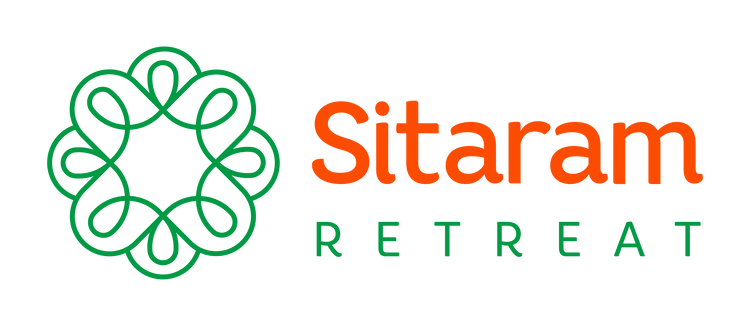Anxiety
Anxiety is something that most individuals experience at some point in their life. On the other hand, fear disorder sufferers frequently experience extreme, excessive, and persistent anxiety and panic in everyday situations. Recurrent episodes of severe anxiety, fear, or terror that peak within minutes is typical in anxiety disorders (panic attacks).
Anxiety and panic can cause problems in everyday life, be challenging to control, be out of proportion to the actual risk, and last long. You might avoid specific places or situations to prevent negative feelings. Symptoms might begin in childhood or adolescence and last into adulthood. Anxiety can be treated in different ways.
Effective Ayurvedic treatment for anxiety
Abhyangam – A full-body massage with medicated herbal oils (from head to toe) is abhyangam. Increases blood circulation, which aids in the removal of toxins from the body. In addition, the stimulation of essential pressure points causes neurological stimulation, which reduces tension.
Padabhyangam – Padabhyangam is a type of herbal foot massage that concentrates on critical pressure points in the foot. These key areas promote mental serenity and stress reduction.
Nasyam – Nasyam is the practice of administering medicinal medications or oils through the nostrils. It stimulates the brain’s vital regions, energizes the nerves and helps to control emotions.
Pizhichil – Squeezing of heated therapeutic oil onto the patient’s body from a piece of cloth that has been soaked in a vessel containing the medicated oil is called pizhichil. Warm medicinal oils are squeezed to assist the system in retuning itself, resulting in physical and emotional calm. Stress and tension build up in the body due to a variety of reasons, leading to oxidative stress, which Pizhichil can successfully prevent.
Kizhi – Kizhi is made of powders, herbs, grains, and sand bound in a kora fabric. The powders, spices, rice, or sand sacks are then heated and lightly pounded over the entire body or specific body sections as needed. Circulation improves as a result of this. Increased circulation decreases oxidative stress, alleviating stress-related psycho-physical symptoms.
Shirodhara – Shirodhara involves pouring medicated oil over the forehead in a pendulum motion for a set amount of time. The hypothalamus is stimulated and soothed by the continuous pouring of oil on the forehead, which helps to induce sleep by reducing stress.
What are the symptoms of anxiety?
Common anxiety signs and symptoms include:
– nervousness, restlessness or tension
– always feeling impending danger, panic or doom
– an increased heart rate
– rapid breathing (hyperventilation)
– profuse sweating
– trembling in the body
– always feeling weak or tired
– difficulty to concentrate
– always thinking about everything and worrying
– disturbed sleeping patterns
– persistent gastrointestinal (gi) problems
– having difficulty controlling worry
Anxiety causes
Anxiety disorders are caused by several causes that are still unknown. Anxiety disorders appear to be induced by stressful life events, such as natural disasters, in those already worried. It’s also possible that inherited qualities play an influence.
Types of anxiety
- Agoraphobia – Agoraphobia is an anxiety disorder in which you fear and frequently avoid locations or situations that may make you feel imprisoned, helpless, or embarrassed.
- Medical condition – Anxiety disorder produced by a medical disease comprises severe anxiety or panic symptoms triggered directly by a physical health problem.
- Generalized anxiety disorder – GAD is marked by persistent and excessive anxiety and stress about ordinary activities and events. Worry is out of proportion to the circumstances, is challenging to manage, and negatively influences your physical health. It typically occurs when other anxiety disorders or depression is present.
- Panic disorder – Panic disorder is characterized by recurring bouts of severe anxiety, fear, or terror that peak within minutes (panic attacks). Feelings of shortness of breath, chest pain, or heart palpitations are all possible symptoms. These panic episodes may cause you to worry about them happening again or avoid settings where they have already happened.
- Selective mutism – Selective mutism is a condition in which children refuse to talk in specific environments, such as school, yet can communicate in other settings, such as at home with close family members.
- Separation anxiety disorder – This type of anxiety disorder appears in a childhood marked by anxiety that affects a child’s developmental level and may be linked to separation from parents or sometimes caretakers.
- Social phobia – Due to emotions of humiliation, self-consciousness, and dread of being evaluated or perceived adversely by others, the social anxiety arises. Social anxiety disorder is characterized by high levels of anxiety, fear, and avoidance of social interactions.
- Specific phobia – When exposed to it, specific phobias are defined by intense fear and a desire to avoid a particular object or circumstance. Some people experience panic attacks as a result of their phobias.
- The symptoms of substance-induced anxiety disorder are acute anxiety or panic due to misusing drugs, taking pharmaceuticals, being exposed to a toxic chemical, or withdrawing from drugs.


 retreat@sitaramayurveda.com
retreat@sitaramayurveda.com +91 813 8888 912
+91 813 8888 912
